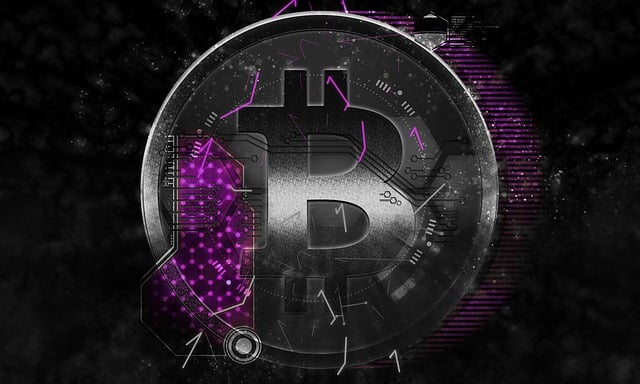Ethereum, a groundbreaking blockchain platform, has revolutionized global investment scenarios by introducing smart contracts and decentralized applications (dApps). Its open-source architecture enables secure and transparent transactions through self-executing smart contracts written in Solidity. The native cryptocurrency, Ether, powers the network, while upgrades like Ethereum 2.0 expand its potential. Ethereum's ecosystem offers diverse investment opportunities across various sectors, from finance and supply chain to gaming and digital identity verification, all facilitated by the Ethereum Virtual Machine. Developers can build and deploy dApps on this platform, unlocking innovative smart contracts investment scenarios with tools like Truffle and Hardhat.
Dive into the dynamic world of Ethereum blockchain development, where decentralized applications and smart contracts are reshaping industries. This article guides you through the fundamentals of Ethereum and its powerful blockchain foundation, explores the potential of smart contracts in building decentralized applications, and delves into investment opportunities within this burgeoning ecosystem. Discover how to harness Ethereum’s capabilities and explore the financial prospects it offers.
- Understanding Ethereum and its Blockchain Foundation
- The Power of Smart Contracts: Building Decentralized Applications
- Investment Opportunities in Ethereum's Ecosystem
- Getting Started with Ethereum Blockchain Development
Understanding Ethereum and its Blockchain Foundation

Ethereum, often hailed as a game-changer in the world of digital currencies, is a decentralized, open-source blockchain platform that has revolutionized investment opportunities with its innovative use case—smart contracts. At its core, Ethereum’s blockchain foundation facilitates the execution and enforcement of these self-executing, digital agreements without the need for intermediaries. This technology has immense implications, offering a secure, transparent, and efficient way to handle various transactions, from financial services to supply chain management.
The Ethereum network is powered by its native cryptocurrency, Ether (ETH), which serves as both a unit of account and a means to incentivize network participants, known as miners, who validate transactions on the blockchain. This decentralized nature ensures that no single entity controls the network, fostering trust and security. Smart contracts, written in the Solidity programming language, are deployed on this blockchain, enabling automated interactions and transactions, thus streamlining processes and reducing costs across industries.
The Power of Smart Contracts: Building Decentralized Applications

The Ethereum blockchain has revolutionized decentralized applications (dApps) and smart contracts, unlocking immense potential for innovation and investment opportunities. Smart contracts are self-executing agreements with predefined rules, allowing for transparent and automated transactions without intermediaries. This technology enables developers to create dApps that operate on a global, trustless network, ensuring data integrity and security.
Ethereum’s smart contract functionality has attracted developers and investors alike, fostering a thriving ecosystem. The ability to build decentralized finance (DeFi) protocols, non-fungible tokens (NFTs), and decentralized exchanges has led to significant investments and the emergence of new use cases. As Ethereum continues to evolve with upgrades like Ethereum 2.0, the power of smart contracts is set to grow, further expanding investment opportunities in this groundbreaking technology.
Investment Opportunities in Ethereum's Ecosystem

The Ethereum ecosystem presents a vast landscape of investment opportunities, driven by the universal appeal of smart contracts. This technology allows for decentralized applications (dApps) to be built and deployed, eliminating the need for intermediaries in various industries. Investors are drawn to Ethereum’s promise of revolutionizing finance, governance, and even entertainment through non-fungible tokens (NFTs). The network’s open-source nature encourages innovation, fostering a vibrant community of developers building decentralized solutions that cater to real-world needs.
Smart contracts investment opportunities on Ethereum extend beyond crypto trading. They encompass a diverse range of applications, from supply chain management and insurance to gaming and digital identity verification. As the Ethereum Virtual Machine (EVM) enables developers to create and deploy these smart contracts with relative ease, the potential for revenue generation and disruption across sectors is immense. The growing adoption of Ethereum’s ecosystem indicates that those who invest early in its development could reap significant benefits as the platform continues to shape the future of decentralized technologies.
Getting Started with Ethereum Blockchain Development

Dive into Ethereum blockchain development and unlock a world of exciting possibilities, especially in smart contracts and investment opportunities. The first step is to understand that Ethereum isn’t just a cryptocurrency; it’s a decentralized platform that enables developers to build and deploy applications on its blockchain network. This makes it a versatile choice for creating decentralized apps (dApps), where traditional client-server architectures are replaced with peer-to-peer interactions, ensuring enhanced security and transparency.
To get started, familiarize yourself with Solidity, Ethereum’s primary smart contract programming language. Smart contracts are self-executing agreements that live on the blockchain, automating processes and eliminating intermediaries. As you learn Solidity, explore development environments like Truffle or Hardhat, which simplify the process of writing, testing, and deploying smart contracts. These tools provide a robust framework for building decentralized applications, opening doors to innovative investment opportunities within the Ethereum ecosystem.
Ethereum’s blockchain has paved the way for a new era of decentralized applications and smart contracts, opening up immense investment opportunities. By understanding its foundational concepts and leveraging the tools provided for development, creators can build innovative solutions that disrupt traditional systems. The ecosystem’s potential is vast, attracting investors and developers alike, and with continuous growth, Ethereum promises to shape the future of digital interactions and finance.
